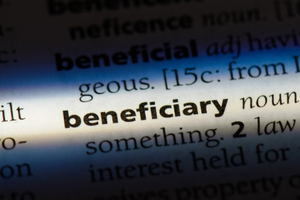Tag: estate planning
How Do You Divide Jewelry in an Estate?
Posted on June 22, 2022

Rings, necklaces, bracelets, and other types of jewelry often have great sentimental value as well as significant financial value. Determining how to address jewelry in your estate plan can sometimes be overwhelming. Should you leave all the jewelry to one individual or split jewelry up between your loved ones? Do you need to have the pieces appraised before assigning them to heirs through your will? Can children, grandchildren, and other loved ones figure out how to divide jewelry on their own after your passing? Whether it is your high school […]
Should You Plan and Finance Your Funeral?
Posted on June 9, 2022

Although it can be uncomfortable to think about, it is important for everyone to consider how their final arrangements should be made. The average funeral costs upwards of $7,000. This can be a major expense for grieving family members to contend with. Consequently, many people choose to finance their funeral and burial ahead of time. They also make sure family members are aware of their preferences regarding funeral arrangements such as music or religious ceremonies. If you are creating your estate plans, take some time to think about pre-planning and […]
Do You Need a Contingent Beneficiary on Your Estate Planning Documents?
Posted on June 2, 2022

Estate plans allow you to pass on assets of both financial and personal value to your loved ones upon your death. The individuals you choose to designate assets to are called beneficiaries. Choosing beneficiaries and deciding how to distribute your possessions is no easy feat and there are many different factors to consider. This is why most estate planning lawyers encourage people to take their time and weigh their options carefully when creating a will, trust, or other estate planning document. When choosing beneficiaries, many people overlook a crucial question: […]
Have You Included Your Pets in Your Will?
Posted on April 27, 2022

Whether it is your fluffy cat, loyal dog, or prized pony, you need to think about and plan for who will take care of your pets should you become incapacitated or pass away. It is important to find the right people to care for your animals and the right homes for them. It is also important to discuss those plans with the intended caregivers since not everyone has the desire or ability to take care of pets. Animal Companions in Your Estate Plans Taking care of pets can be expensive, […]
The Tax Consequences of Leaving No Will or Estate Plan
Posted on April 7, 2022

This time of year, everyone is thinking about taxes, but taxes are something you should plan for long before April 15. When you do not leave a will or, better yet, a full estate plan, you may incur tax consequences that take money away from those you love and want to take care of. By planning ahead and using the correct financial instruments, you will be able to reduce your tax burden and have more control over your assets. Why Have a Will and Estate Plan? Without a will, your […]
What Is the Right Tax Strategy for Your Estate Plan?
Posted on March 29, 2022

It is important for families to plan for the future. During the estate planning process, a person or married couple may decide how different types of property or assets will be passed to their heirs while also ensuring that they will have the financial resources they need in the future. Wealth protection is a key part of estate planning, and this includes tax planning. By understanding the role that estate taxes and other taxes will play when transferring assets to family members or other heirs, a family can determine the […]
What Assets Should Be Included in a Trust?
Posted on March 17, 2022

There are a variety of tools that can be used for estate planning. Trusts are some of the most powerful and flexible instruments that can protect the assets you own and make sure they will be used properly both before and after your death. When assets are held in a trust, you will technically no longer own them, since ownership will be transferred to the trust itself. Depending on the type of trust you use, you may be able to maintain control over your assets by serving as the trustee. […]
Why Do Some Estate Plans Need a Professional Executor?
Posted on July 20, 2021

In the realm of estate planning and administration, an executor is responsible for managing the deceased person’s estate, distributing assets to beneficiaries, paying taxes and other financial obligations, and more. Often, the executor of an estate plan is a family member or close friend of the deceased person. However, there is no rule that this must always be the case. In many situations, a professional executor such as an estate planning attorney, trust company, or bank is better suited for the executor role. Some Individuals Choose a Professional Executor for […]
Smart Estate Planning Moves for Complex Estates
Posted on July 6, 2021

A comprehensive estate plan allows you to provide for your family, reduce taxes, avoid family conflicts about inheritance, and leave a lasting legacy. There are nearly countless different legal tools to help you achieve your estate planning goals based on your unique situation. The types of estate planning tools you use will depend mainly on the type of property you own and the complexity of your estate. Individuals with complex estates will need to work with an experienced estate planning lawyer to build a robust estate plan that adequately addresses […]
Top Illinois Estate Planning Questions Answered
Posted on June 22, 2021

Did you know that only 40 percent of Americans have a will? Even fewer have a comprehensive estate plan. A surprisingly large percentage of adults simply avoid estate planning or put it off until it is too late. Estate planning is important for anyone, but it absolutely crucial for those with high-value or complex estates. Read on to learn answers to some of the most common estate planning questions. At What Age Should I Start Building an Estate Plan? Many people wonder, “Am I old enough to write a will, […]














